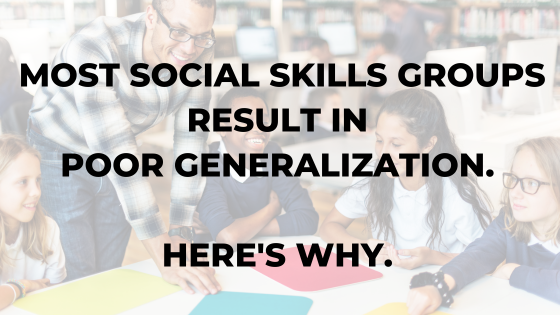The most common complaint I hear from K-12 therapists relating to social skills is that kids don’t generalize what they learn in therapy to the real world.
That’s because most therapy sessions are done in an “academic format”, and social interactions aren’t “academic”.
Human interactions in an unstructured environment requires an essential set of cognitive processes that often aren’t addressed in most social skills training.
In this video I explain what those skills are.
This video clip is taken from my free online training:
How to be neurodiversity-affirming and evidence based (by supporting executive functioning).
In this free training I reveal:
- Why kids continue to experience anxiety or behavioral challenges, even though they’re going to therapy or have a behavior plan.
- Common mistakes multidisciplinary teams make when teaching executive functioning (and why lists, planners, and behavior charts aren’t working).
- Why kids continue to struggle with problem-solving, and friendships, even though they’re going to therapy and social skills groups.

